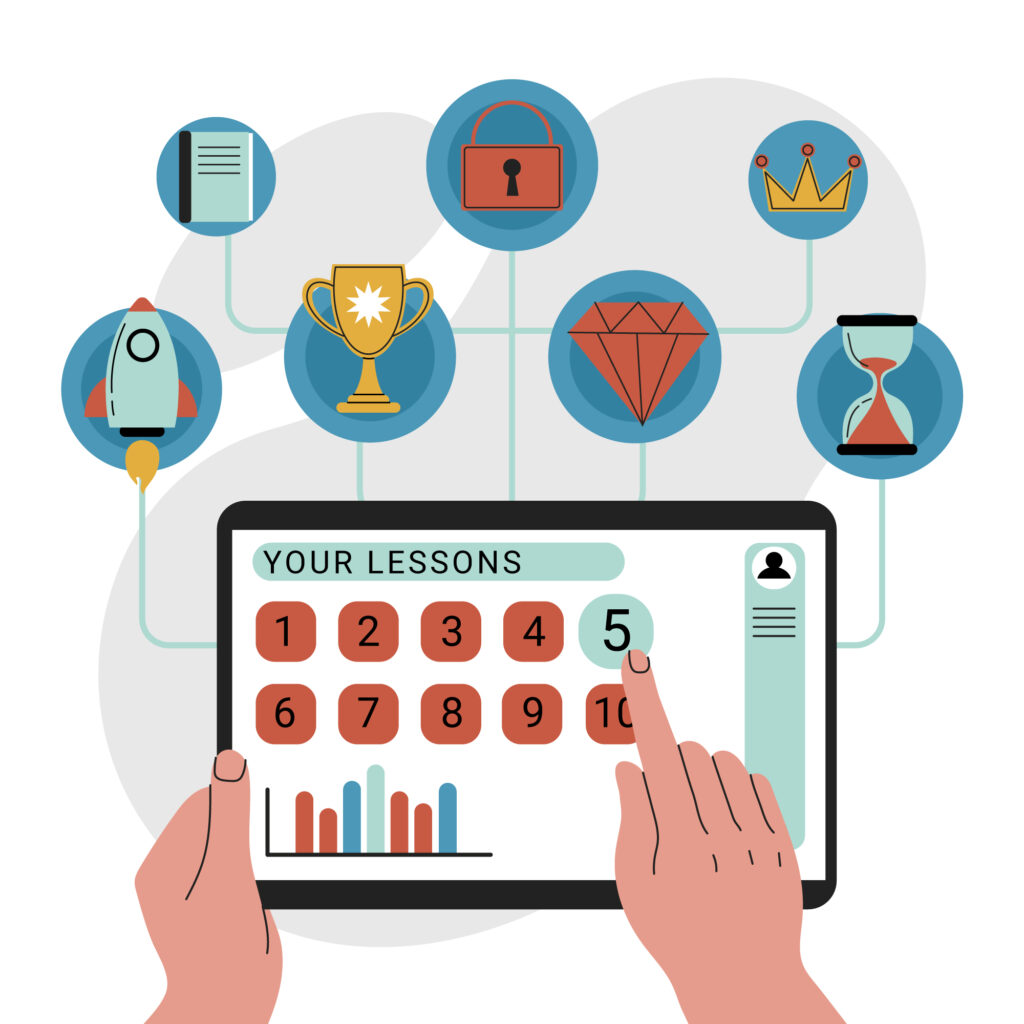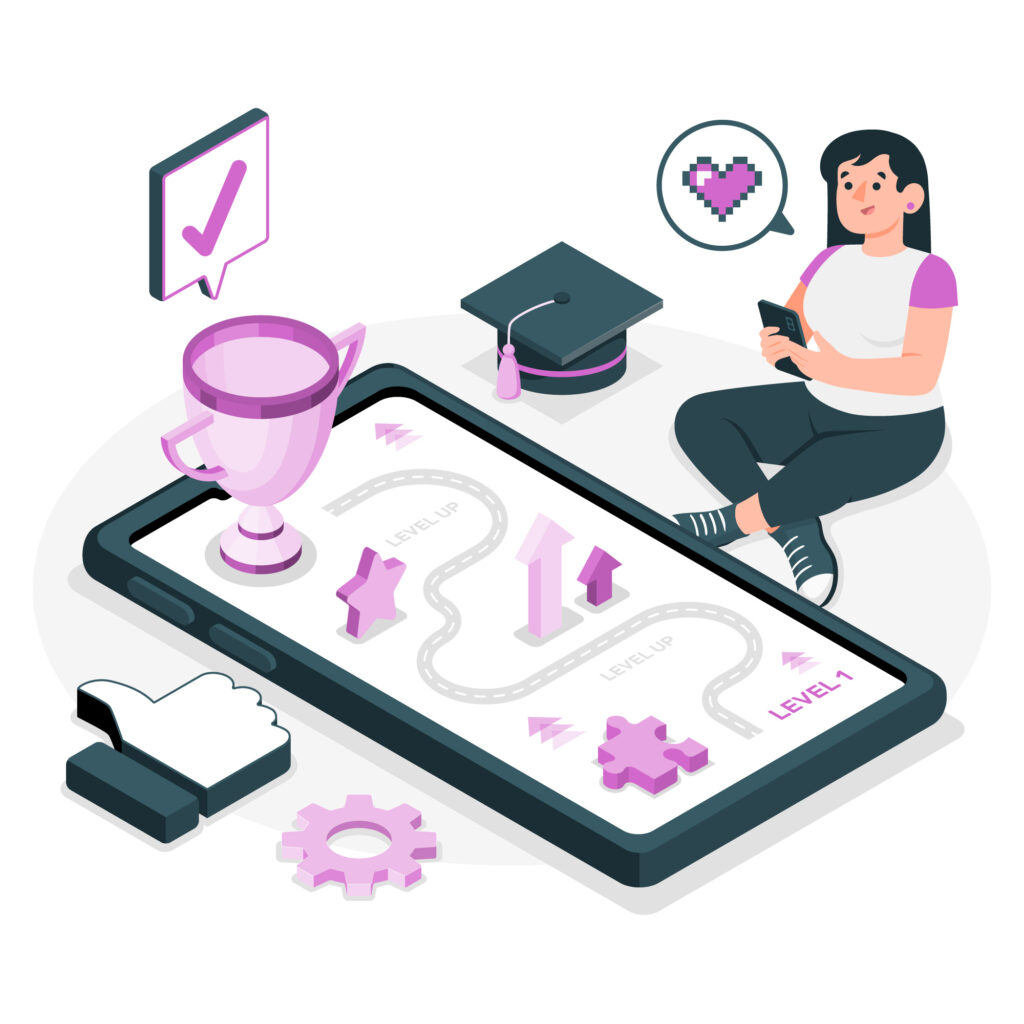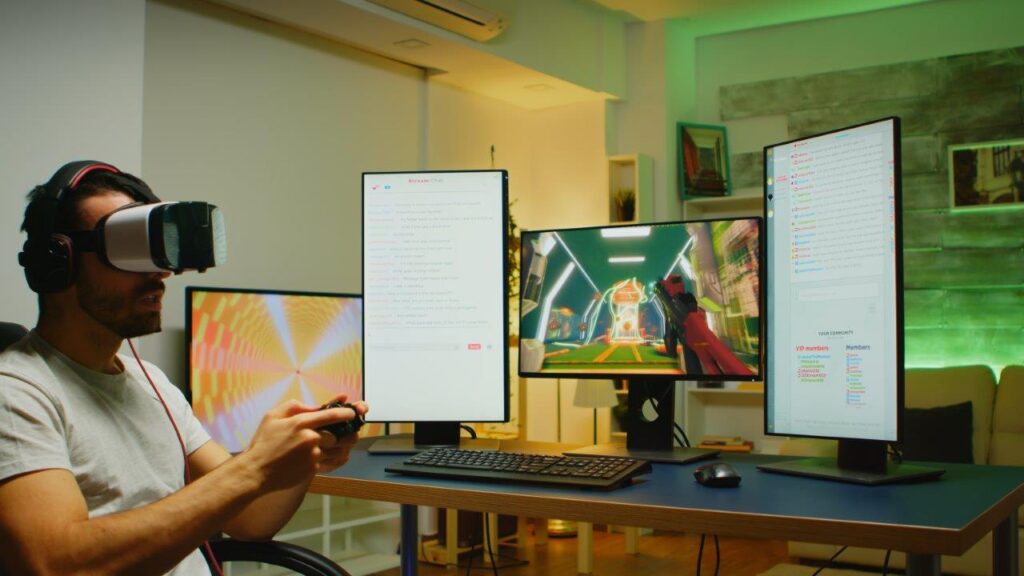The world of education has been transformed by mobile technology, with smartphones and tablets becoming an integral part of the learning experience. The use of mobile games as an educational tool has become increasingly popular in recent years, with educators and developers alike recognizing the potential of gamification to engage students and enhance the learning process. In this article, we will explore the concept of gamification in education and how mobile game development can be used to create effective learning experiences.

What is Gamification in Education?
Gamification is the process of applying game mechanics and elements to non-game contexts, such as education. By incorporating elements such as points, badges, and leaderboards into learning activities, educators can increase student motivation and engagement. Gamification can also provide students with immediate feedback, which can be crucial for learning.
The Benefits of Gamification in Education
Gamification has numerous benefits in the context of education. Here are some of the key advantages:
1. Increased Motivation
Gamification can help to increase student motivation by providing a sense of accomplishment and reward for completing learning activities. This can help to foster a sense of achievement and improve student engagement.
2. Enhanced Learning
By incorporating game elements into learning activities, educators can provide students with a more immersive and interactive learning experience. This can lead to enhanced learning outcomes and better retention of information.
3. Immediate Feedback
Gamification can provide students with immediate feedback on their progress, which can help to identify areas where they need to improve. This can be especially beneficial in subjects such as mathematics, where immediate feedback can be crucial for learning.
4. Customization
Gamification allows for customization of learning activities based on the needs and abilities of individual students. This can help to ensure that each student is receiving an appropriate level of challenge and support.

Mobile Game Development for Learning
Mobile game development provides a powerful tool for educators to gamify learning experiences. By creating mobile games that incorporate educational content and game mechanics, developers can create engaging and effective learning experiences for students.
There are several key considerations when developing mobile games for learning:
1. Learning Objectives
Mobile games should be designed with specific learning objectives in mind. This requires collaboration between developers and educators to ensure that the games are aligned with the curriculum and meet the learning goals.
2. Game Mechanics
Mobile games for learning should incorporate game mechanics that are appropriate for the age and ability level of the students. This may include elements such as points, badges, and leaderboards, as well as more complex game mechanics such as resource management or decision-making.
3. User Experience
Mobile games for learning should be designed with the user experience in mind. This means ensuring that the game is intuitive and easy to navigate, with clear instructions and feedback.
4. Accessibility
Mobile games for learning should be accessible to all students, regardless of their abilities. This may require incorporating features such as text-to-speech or adjustable font sizes.
Examples of Successful Mobile Games for Learning
Kahoot!: Kahoot! is a game-based learning platform that allows educators to create quizzes and interactive learning experiences. The platform has been used by millions of students worldwide and has been praised for its ability to engage students and enhance learning outcomes.

Duolingo: Duolingo is a language-learning app that uses gamification to make language learning fun and engaging. The app has been downloaded over 500 million times.
Game-Based Learning in Higher Education
Game-based learning has been primarily associated with primary and secondary education, but there is a growing interest in incorporating games into higher education as well. This approach has the potential to increase student engagement and motivation, which can lead to better academic performance.
In a study published in the Journal of Educational Psychology, researchers found that a game-based approach to teaching statistics was more effective than traditional teaching methods in terms of student performance and retention of information. Additionally, students reported higher levels of engagement and motivation with the game-based approach.
The Future of Gamified Learning
The potential for gamified learning is immense, and as technology continues to advance, so too will the capabilities of educational games. One exciting development is the use of virtual reality (VR) and augmented reality (AR) in education.
VR and AR can provide immersive learning experiences that allow students to explore complex concepts and interact with the material in ways that were not possible before. For example, medical students can use VR to practice surgical procedures in a safe and controlled environment, while history students can use AR to explore historical sites and artifacts.
As the field of mobile game development for education continues to evolve, it is important to consider the potential impact on students and the educational landscape as a whole. With the right approach and tools, game-based learning can be a powerful tool for improving student engagement, motivation, and academic performance.
Mobile game development for education has the potential to revolutionize the way we approach learning. By incorporating game elements and mechanics into educational content, we can increase student engagement, motivation, and retention of information.
Whether in primary, secondary, or higher education, game-based learning has been shown to be effective in improving academic performance and student outcomes. As technology continues to advance, the potential for educational games to become even more immersive and engaging is immense.
As educators and game developers continue to collaborate and innovate, we can expect to see more creative and effective educational games in the future. Mobile game development for education is a rapidly growing field, and the possibilities are endless.


